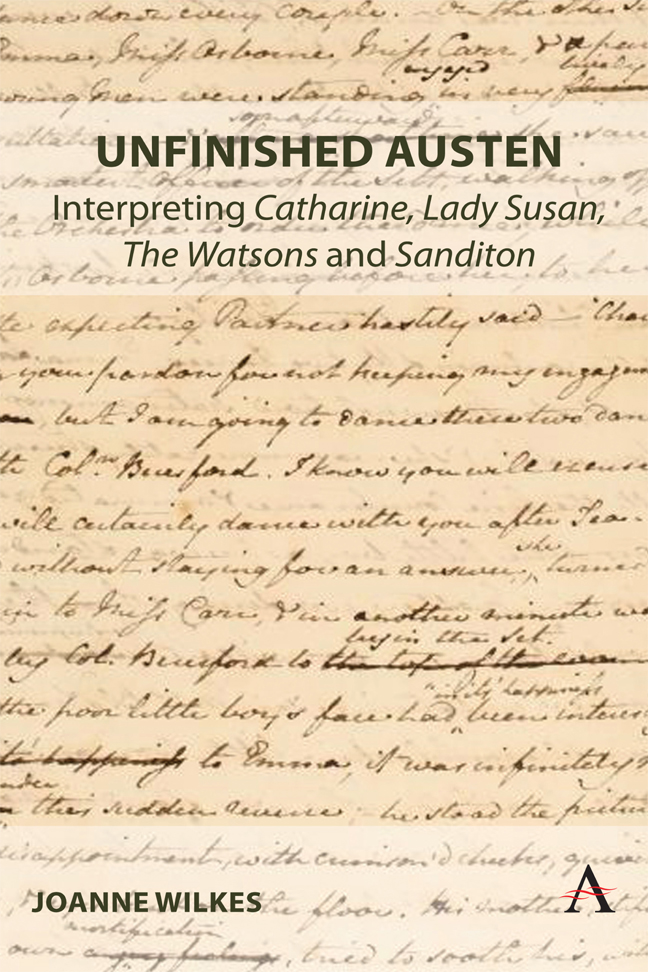 Unfinished Austen
Unfinished Austen 2 - Catharine, or the Bower
Published online by Cambridge University Press: 29 February 2024
Summary
‘Catharine, or the Bower’ is the third of Jane Austen's early writings that were dedicated to her elder sister Cassandra: dated ‘August 1792’ (when Jane was 16), it follows ‘The Beautifull Cassandra’ (1788, after August, when Jane was 12) and ‘The History of England’ (26 November 1791, just before Jane's 16th birthday). This third Dedication pays an extravagant tribute to ‘Miss Austen’, referring to the two earlier works, and declaring that through Cassandra's ‘generous support’, these ‘have obtained a place in every library in the Kingdom, and run through threescore Editions’. ‘The Author’ of the third effort hence seeks similar support for this new novel, affirming that it ‘possesses Merit beyond any already published, or any that will ever in future appear’ – other than her own.
All this is of course a sort of in-joke, directed not only at Cassandra but also at the other family members and friends who were, in Austen's lifetime and for decades beyond, the only other readers of her early works. The Dedication thus expresses, on the one hand, a fantasy about a kind of literary success unlikely to be achieved by anyone in 1792, and on the other, a satirical take on literary hubris.
However hyperbolic and tongue-in-cheek the claims of this tribute may be, the earlier works dedicated to Cassandra Austen, like this Dedication, focus on female agency. In ‘The Beautifull Cassandra’, the heroine, named obviously for Cassandra Austen, is a milliner's daughter who jauntily moves through the streets of London, having uplifted a bonnet intended by her mother for a Countess. She gives short shrift to a Viscount, then buys six ices and knocks down the pastrycook rather than paying him; she makes a round trip to Hampstead by coach, and can defiantly – but conveniently – give the coachman the bonnet in lieu of pay. Returning home, Cassandra declares that ‘This is a day well spent’ (56). This Cassandra is obviously mobile, shows no respect for her social betters, has no interest in a possible marital ‘catch’, breaks the law and suffers no consequences for her transgressive behaviour. In a parody of narratives focussed on change and development, Cassandra returns to where she started out; in a parody of narratives dealing with courtship, she simply curtseys to the Viscount, despite his being ‘a young man, no less celebrated for his Accomplishments and Virtues, than for his Elegance and Beauty’ (56).
- Type
- Chapter
- Information
- Unfinished AustenInterpreting <i>Catharine</i>, <i>Lady Susan</i>, <i>The Watsons</i> and <i>Sanditon</i>, pp. 17 - 30Publisher: Anthem PressPrint publication year: 2023
